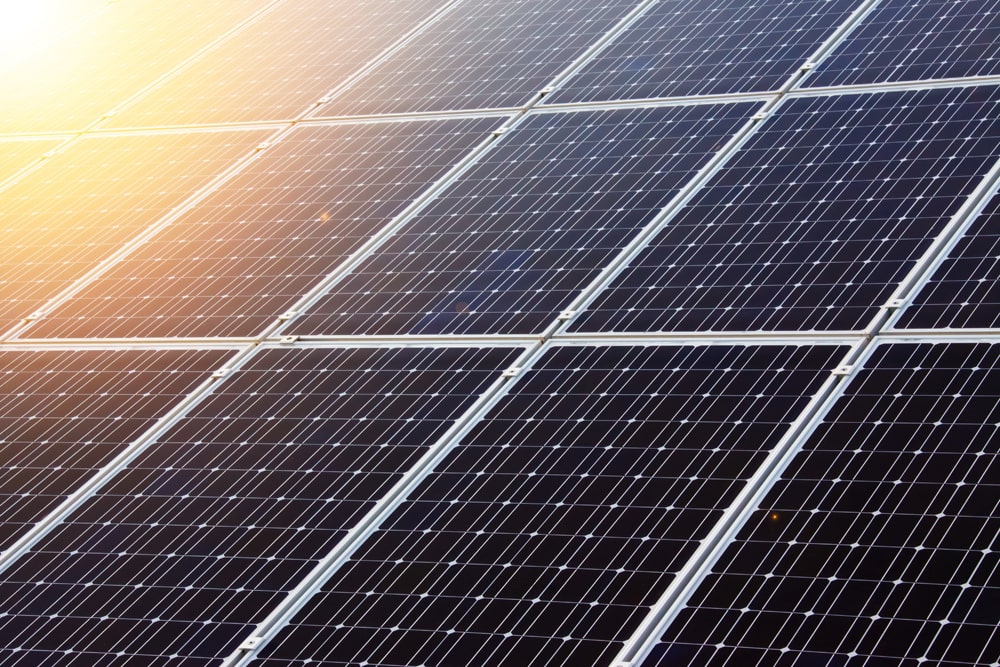Table of contents
Solar Savings
How to Pay for A Solar Array for Business
Should I Buy or Lease My Solar Panel System?
Who Provides Solar Loans or Solar Financing?
Tax Credits and Other Financial Incentives
System Operations and Maintenance Costs
How an Energy Consultant Can Help
About Verde Solutions

Are you looking for the next best energy solution to reduce your carbon footprint and reduce your monthly expenses? Solar power can help to give your commercial building or home the edge by slashing your long-term energy costs and improving your environmental impact. Whether you’re looking to go green as a business or transform your home, here is everything you need to know about solar energy finance solutions.
Article at a Glance
- Solar energy financing options include cash, solar leases & solar loans.
- Financial incentives like tax credits, rebates & certificates significantly reduce solar investment costs.
- Energy consultants help choose the best financing plan & manage system maintenance.
Solar Savings
There are so many advantages to solar energy solutions, not just for the environment, but also for your bank balance! Your savings are set to improve dramatically if you seek out solar energy solutions for your commercial property or home. Of course, your overall solar savings will depend on where you live, your current electricity bills, and the financing options available to you, but in general, there are many benefits to start exploring. In less than ten years, you could have paid back the money you put into your solar energy solutions and you will continue to save for the next couple of decades! If you are wondering how you could save money by turning to solar, here are a few more pieces of information you should know.
Steering clear of ever-increasing electricity costs is one of the main advantages of switching to solar. If you are living in an area with high electricity rates, your solar savings will be considerably higher! Similarly, your savings could also be improved if you seek out one of the many renewable energy finance solutions available to you. Financing options make solar energy solutions simple and affordable, from loans to leases. With financial incentives such as cash rebates and tax credits, your local government might even reward you for going solar!
To fully understand how much you can save by opting for solar solutions in your home or at your business property, you should contact a reputable energy consultant. You will soon discover your renewable energy finance solutions so that you are fully aware of your options.
How to Pay for A Solar Array for Business
There are three main options when it comes to paying for a solar system for your business. You can pay by cash, explore a solar lease (PPA) or take on financing through a solar loan. Here is a little more detail about each option:
Cash
Paying for your solar power by cash might not be feasible for many people, however, it is a simple and straightforward transaction. Once you have paid the cost of your solar panel system and installation, you will then be the owner of the energy system and responsible for its maintenance. Although the upfront costs will be quite considerable, you will be able to start making money back on your investment right away.
Solar Lease
If you choose to go with a solar lease for your commercial building or home, you will be looking at a contract in which a solar company agrees to fund the installation of panels on your roof. They will then charge you a monthly fee for you to use these panels for the duration of the contract. A solar lease normally runs between fifteen to twenty-five years and the solar company will maintain and own the panels during this period. This could also be called a third-party lease because the panels will not be owned by you during the term of the lease. You will be able to compare the returns and savings from a solar lease by considering your current monthly power bills and comparing them to your potential lease agreement.
Solar Loan
If you want to maximize the financial payoffs for your solar energy system, a solar panel loan could be the ideal answer for you. There are several solar loan options available and you could save up to 70% over the lifetime of your solar panels. Although there are different options, most solar loans have the same simple regulations as other home improvement loans might have. When you borrow money from your chosen lender, you agree to pay this back with interest on top. Your installments will usually be monthly and you can start making immediate returns right away. A solar loan allows you to own an asset that creates a substantial amount of financial value for your home; solar power is much more beneficial than any other home improvement project.
Hopefully, these solar system finance solutions give you a greater insight into what you could achieve by going solar. Whether you’re looking at a lease or a loan, there are so many ways to benefit from solar energy solutions.
Should I Buy or Lease My Solar Panel System?
Often your energy consultant or those installing your solar system for your business can help you with your financial arrangements. If you do not have the cash to pay for the solar power system, you should consider one of the other options outlined above. The amount you are willing to pay each month will affect the interest rate and the length of your loan too, so make sure you consider how much your monthly payments will be overall.
Who Provides Solar Loans or Solar Financing?
There are a number of institutions that can offer solar energy loans; you don’t just have to follow up with banks. Here are four notable options worth exploring and discussing with a consultant:
- Some towns and cities offer Property Assessed Clean Energy (PACE) solar energy financing solutions. These are repaid once a yearly assessment is carried out on the property owner’s tax bill.
- Many solar panel manufacturers have loan and lease options outlined on their website.
- Private lenders and local government agencies may agree to some solar energy loan programs as they pair up and offer solar loans with low interest rates.
- Many credit unions around America have many low-cost solar solutions to offer to business owners and homeowners.
Tax Credits and Other Financial Incentives
When you opt for a solar energy, there could be many financial benefits for you. The following financial incentives can apply to both residential and commercial properties with new solar power systems.
Solar Investment Tax Credit (ITC)
Depending on the area you live in, some states offer tax credits for installing a solar panel system. You can deduct part of the cost of the system from your tax bill and make a significant saving on your investment!
Solar Renewable Energy Certificates (SRECs)
Some states require a proportion of their power to come from solar energy, so you will benefit if you live in one of these states. Your solar power system could generate solar renewable energy certificates for the amount of electricity your system produces.
Tax Deductions
You may not be required to pay tax if your property increases in value after your solar power system has been installed. Similarly, your new system might also be exempt from state sales tax which can create additional savings.
System Operations and Maintenance Costs
As well as the initial costs of a solar panel array, you may also be wondering about the costs of system maintenance. Luckily, this will not be an issue for anybody, as solar energy systems require very little maintenance during their lifetime. The majority of solar panels come with a twenty-five-year warranty, which will give you peace of mind when you purchase. Solar installers will also offer a warranty that covers the installation itself too.
If you don’t buy using cash and you have chosen a leasing option, the company will usually offer a service program to cover any potential maintenance issues that may arise during your contract. If you choose to take out a solar loan to buy your solar PV system, you will be solely responsible for the maintenance of the system. If you have any questions about the operational costs of your solar solutions, please contact an energy consultant for more information on your individual circumstances.
How an Energy Consultant Can Help
If you are still unsure about your options, Verde Solutions and The RXSun can help you to implement your financial arrangements for renewable energy. You should also understand that solar energy is just one solution; an energy consultant will be able to discuss other energy efficiency options in more detail with you.
Verde Solutions, LCC is a turn-key, full-service energy consulting firm working closely with its clients to develop comprehensive energy strategies for municipalities, large industrial and commercial companies and small businesses in providing solar installations in Illinois and across the country. The RxSun is the residential solar branch of Verde Solutions. Together they can assist with solar installations and solar financing for your commercial business or home.
Reach out to a reputable Chicago energy consultant today and find out more about your solar energy finance solutions and much more. Do you have any questions? Our friendly team is ready to answer your questions, so please get in touch today for more useful information!
About Verde Solutions
Verde Solutions is full full-service, energy efficiency consultant firm founded on three main principles; Innovation, Sustainability, and Efficiency. At Verde, we create value for our clients and communities by providing innovative energy-efficient solutions. By reducing energy use and utilizing renewable energy, we lower costs and set a sustainable path for the future. Call 800-541-1137 to connect with our team!

